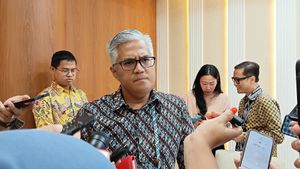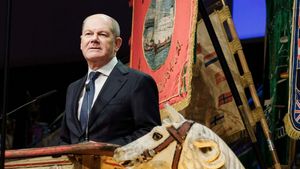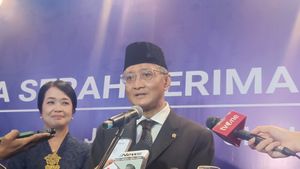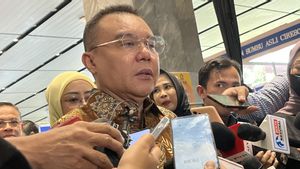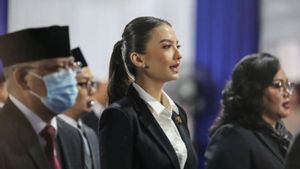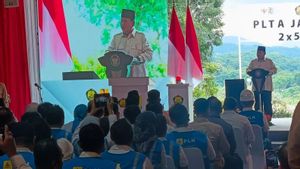JAKARTA - The post-truth era affects many sectors of people's lives. Including a culture of corruption. The post-truth era opens up opportunities for increasing corruption cases.
Hasrul Halili, a legal expert who is also the Secretary of the Center for Anti-Corruption Studies at Gadjah Mada University, said that the post-truth era tends to lead to people's behavior that is contrary to the principles of honesty and integrity.
"Now, corrupt behavior and criminal acts of corruption are increasingly becoming one of them because we are in the post truth era, an era where we are facilitated by lying, not being authentic, and manipulative in the public sphere," said Hasrul Halili.
This was stated by Hasrul Halili when he was a speaker in a national webinar entitled "Developing Student Anti-Corruption Integrity" which was broadcast live on the Ahmad Dahlan University YouTube channel, monitored from Jakarta, Saturday, December 11.
An important feature of the post-truth era or post-truth era, he continued, is that lies are manipulated in such a way as to appear to be the truth and that justification takes precedence over the true truth.
"Lastly, the hallmark of the post-truth era is that information is conveyed by playing with emotional psychology rather than scientific and data-based argumentation," added Hasrul Halili.
From these characteristics, he said, criminal acts of corruption and corrupt behavior are increasingly rampant because the post-truth era causes the dominant things in society to be manipulated, disinformation, hoaxes, and lies.
Furthermore, Hasru Halili assessed that all of these things encourage the emergence of behavior that is contrary to the principles of honesty and integrity. Thus, people in the post-truth era are also encouraged to commit criminal acts of corruption.
"The so-called corruption, playing in the area of lies like this and can be a serious threat to what we call the values of integrity and honesty," he asserted.
To overcome this threat, Hasru Halili appealed to all universities in Indonesia to be able to build character education that links three things as stated by Yudi Latif in the book Insights of Pancasila: Guiding Star for Civilization.
The three things, he explained, are moral knowledge, actual behavior, and concrete situations. In addition, he also appealed to universities to be able to become islands of integrity or role models for the Indonesian people and have substance and anti-corruption learning methods.
Through such steps, said Hasrul Halili, students in all universities can become cadres of the anti-corruption struggle for Indonesia.
The English, Chinese, Japanese, Arabic, and French versions are automatically generated by the AI. So there may still be inaccuracies in translating, please always see Indonesian as our main language. (system supported by DigitalSiber.id)



